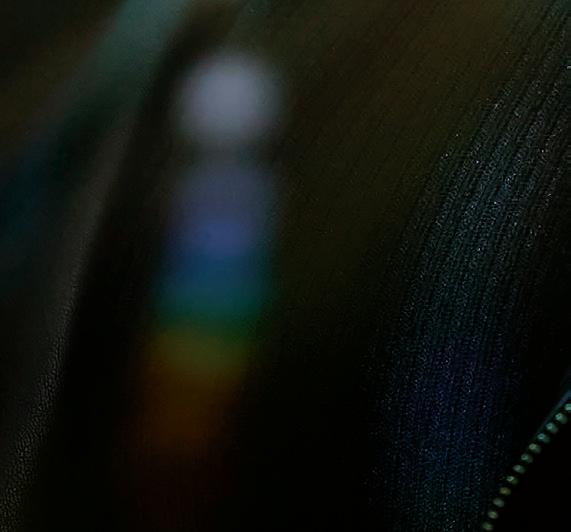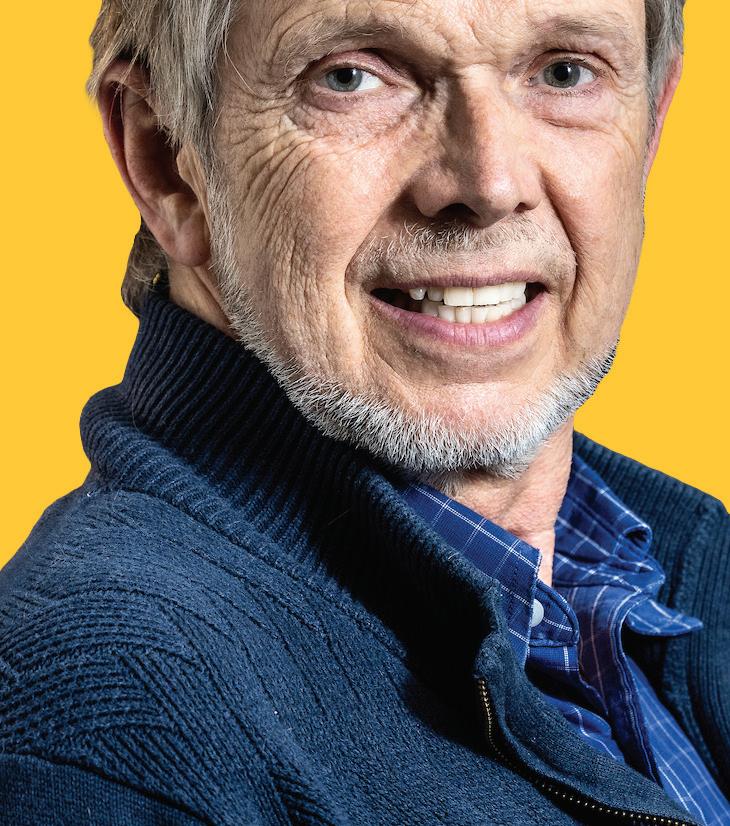past, present and future Exploring the



















Faculty and students in The College of Liberal Arts and Sciences research the past and present of the world and beyond to look toward the future for a society that values discovery, sustainability and humanity.
Leveraging the cutting-edge technologies and expertise of Arizona State University and community partners, The College is advancing new discoveries in health, history, science, technology and archeology, among other topics in our academic units and centers.
By supporting and strengthening existing scholarship, we’re paving the way for a new generation of scholars to continue the legacy of innovation.
ASU’s Lincoln Center for Applied Ethics was recently awarded funding from the National Humanities Center for its Responsible AI Curriculum Design Project. In partnership with Mesa Community College, the project will develop responsible artificial intelligence curricula that investigate the ethics, impact and sustainability of AI.
Fifty years ago, the 3.2 million-year-old “Lucy” was discovered in Ethiopia, which proved that our ancestors were bipedal. The Institute of Human Origins has dedicated 2024 to the 50th anniversary of the discovery with a yearlong “master class” in human origins, examining newly emerging scientific questions about human existence over time.
Scientists in the Department of Psychology are investigating the e ects of the removal of the uterus on brain function. Hysterectomy-induced cognitive impairments were seen to last six weeks to a year. Analyzing the female reproductive system will lead to better patient care in the future.
American Indian Studies and the School of Civic and Economic Thought and Leadership welcomed new directors for the 2024-25 academic year.
American Indian Studies’ new director Angela Gonzales is a citizen of the Hopi Nation and has been a faculty member at ASU since 2016.
“I saw the potential to begin to build something that I think not only AIS deserves, but ASU deserves as well.”
Experiential learning, such as internships, study abroad opportunities and research apprenticeships, prepare students with careerreadiness skills that are essential for entering the workforce.
Richard Avramenko began his tenure as the director of the School of Civic and Economic Thought and Leadership. He joins us from the University of Wisconsin–Madison where he taught political theory and civics education and was most recently a political science professor and director of the Center for the Study of Liberal Democracy.
Whether you are able to attend an event, donate to a cause close to your heart or share your own story, your support can help The College educate the next generation and fuel world-class research in language, culture and society, critical thinking, scientific exploration and discovery.
Learn about the past, present and future of human beings at the “Lucy 50” event series hosted by the Institute of Human Origins: iho.asu.edu/Lucy50
Assist in creating an ethical and sustainable future for technology and AI: asufoundation.org/lincoln
“The opportunity to lead a whole school that approaches civic and economic thought [this] way was impossible to pass up,” he said.
Unfortunately, for first-generation and lowerincome students, these programs can often seem out of reach. The Futures Initiative at The College of Liberal Arts and Sciences hopes to change that.
Through career counseling, internship and research scholarships and adaptable new programs, the Futures Center will help all of our over 30,000 become strong candidates in the job market.
ASU Libraries, the School of International Letters and Cultures and the School of Historical, Philosophical and Religious Studies collaborated to design and install a future exhibit on the Tempe campus highlighting the 1964 Martin Luther King, Jr. speech at ASU and the history of the civil rights movement in Arizona.
Connecting studies to careers
Support researchers who are unlocking the secrets of the human body and behavior: asufoundation.org/psych
Help sustain ASU-led earth and space exploration and research: asufoundation.org/sese
Empower student success in The College’s academic units:
• American Indian Studies: asufoundation.org/ais
• School of Civic and Economic Thought and Leadership: asufoundation.org/scetl
Aid in the documentation of important moments in our local and global history:
• ASU Libraries: asufoundation.org/library
• School of Historical, Philosophical and Religious Studies: asufoundation.org/shprs
• School of International Letters and Cultures: asufoundation.org/silc
Former NBA great Earvin “Magic” Johnson was the keynote speaker on the 60th anniversary of King’s speech and also unveiled the plans for the exhibit that will permanently live in Durham Hall.

Real-world experience, in tandem with a college education, prepares students for career success. The Futures Center, housed in Armstrong Hall, o ers career services for all of our students, including Pre-Health Advising, Prelaw Advising, internship placement and scholarship support.
Improving internship access
The 1990 launch of the Hubble Space Telescope piloted the way for the James Webb Space Telescope (JWST) launch in 2021. Hubble’s data laid the groundwork for the telescope, allowing a wider understanding of what makes up our cosmos. Both telescopes have been instrumental in astronomy research in the School of Earth and Space Exploration, combining data for an awe-inspiring and detailed look at the mysteries of the universe.

“The exhibit shows how ASU had a pivotal moment in its history where it brought the religious community, the political community and the civil rights community together in a climate that wasn’t welcoming,” said Mark Brantley, assistant director of operations for the School of International Letters and Cultures. “Nevertheless, it stood on the frontier of making this happen.”

The Woodside Scholar Program removes the financial burden for students with unpaid internships at nonprofit organizations, encouraging students to pursue these internships, prepare for careers in the nonprofit sector and develop a commitment to lifelong community service.
Engaging online learners
Recently, a cosmology group in the school proposed the three-year program “DARK SKY.” The program will analyze the sky background from the entire available JWST image archive. Viewing dim light from comet dust on faint stars and galaxies will give scientists even more insight to space’s mysteries.




Research experience is critical in preparing students for graduate school and other career paths. Online students at The College can get that hands-on learning opportunity through the Online Undergraduate Research Scholars (OURS) program, which provides remote and hybrid research opportunities to students in the humanities, natural sciences and social sciences.


During the last three decades, Hubble has opened our eyes to the universe in a way never seen before, making humankind understand our place in the cosmos, where we are coming from and what our future will look like. In the next few decades, Webb’s exquisite night vision will expand this in many unforeseen ways.”

— Rogier Windhorst, Regents Professor, School of Earth and Space Exploration
Co-investigator,
James Webb Space Telescope